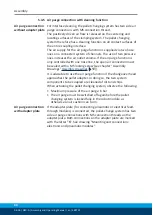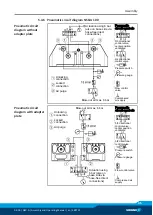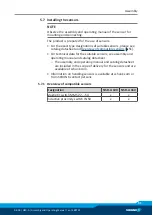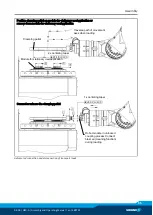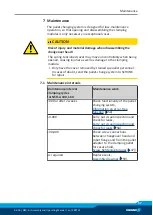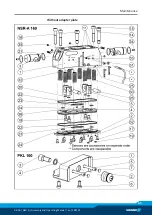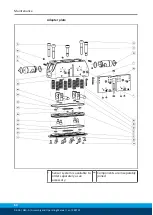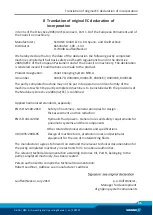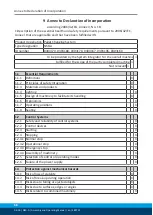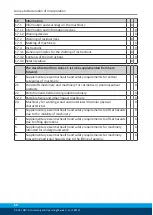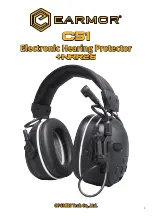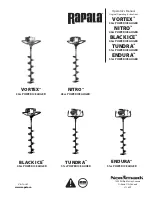
Maintenance
58
06.00 | NSR-A | Assembly and Operating Manual | en | 389722
7.2 Information on error-free function
To ensure the pallet changing system operates perfectly, the
following instructions are to be observed:
• Pressure medium: compressed air - Observe the requirements
for the compressed air supply, ,
• Make sure that the contact surfaces of the interface are always
clean.
• Always ensure that no chips enter the interface.
• Only use high-quality cooling emulsions with anti-corrosive
additives during processing.
• Particularly with the clamping pin axis aligned vertically, it may
be possible that the interface fills up with cooling emulsion. If
this is the case, initiate the unlocking process and dry out the
interface in actuated state.
• Check the pallet changing system at regular intervals. The
system is functioning correctly if the clamping slides move
smoothly at minimum system pressure (5 bar).
7.3 Carry out visual inspection and check for leaks
Visual inspection
• Inspect the pallet changing system for possible damage and
wear.
• After a collision, e.g. when connecting or disconnecting the
transport load, carry out a visual inspection for possible damage
to the components, e.g. cracks.
• If damage or signs of malfunctions are identifiable on the pallet
changing system, it may not be restarted. They can only be
started up again once the faults have been remedied, for
example, by replacement of the damaged components.
Leak test
• Test the pallet changing system for leaks in both module
positions (unlocked and locked).
• To identify any leaks in the complete clamping system, no pallet
adapter should be fitted.
• If the clamping system has leaks, check the entire pneumatic
system (e.g. using Metaflux leak detector spray).
• If any leaks are identified, check the seals and replace them if
necessary.
Leaks at the plug-in connections or in the pneumatic lines, for
example, must be sealed and defective components replaced.

